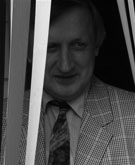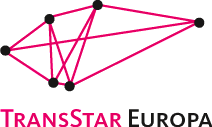 Sead Muhamedagić
Sead Muhamedagić
Foto © Alois Hotschnig
„I translate, therefore I am“
In 2012 Sead Muhamedagić was awarded the Croatian national price “Iso Velikanović“ for his masterpiece, the translation of Thomas Bernhard’s novel Extinction. The eulogy for the award ceremony states: Sead Muhamedagić possesses ample experience in translating verse and consequently his translation of Bernhard’s novel contains great linguistic finesse and resounds like a symphony. An experienced and good translator, who is familiar with the smallest of detail of the novel context and the Croatian language, has translated one of the most relevant and extensive works of one of the greatest Austrian authors.[1]
Sead Muhamedagić was born in Zagreb in 1954, where he completed his degree in German and Yugoslavian Studies and to this day lives as a literary translator, journalist and poet. He translates fiction, poems, essays, scholarly texts on literature and music as well as pedagogical texts from German into Croatian. In addition to Thomas Bernhard he also translates works of German-language authors such as Elfriede Jelinek, Annemarie Schimmel, Werner Schwab, Arthur Schnitzler, Peter Turrini, Karl Kraus, Gert Jonke, Klaus Hensel and W.G. Sebald. He has been awarded a number of prices for his achievements in translation.
Everything began with the Chandos letter by Hofmannsthal, a text about the linguistic and cultural crisis around the turn of the century. Mr. Muhamedagić, is the first text decisive for a translator and how does a translator deal with possible linguistic crises?
Hofmanthal’s Chandos letter is a little masterpiece. Still today I am fascinated by its stylistic conciseness. Twelve years ago I had the opportunity again to minister to my “firstling” once more. There were text passages that still needed to be “refined”. As a translator I have no problems with the linguistic crisis at all. A few years ago I had to overcome another kind of crisis, which I would refer to as an age-related lack of motivation. Why should I only translate the works, of other authors? Would it not make more sense to write my own texts? After extensive contemplation I realized that I am surprisingly capable of transmitting the masterpieces of a diversity of authors in such a way so that they are recognized as such, even as a translation. And since from the beginning of my career path as a translator I was confronted with a very demanding text, I am very well aware of the fact that the Chandos letter was a groundbreaking step for me on this adventurous path.
The principle statement „I translate, therefore I am“ stems from your interview with the Innsbruck author Alois Hotschnig. How strongly does translation influence your existence?
Translation ensures my material existence. Since I am active as a freelance literary translator (LiterarÜbersetzer – I really like this patented expression!) and live exclusively from honoraria I get for translating, this existence is everything but secure. To that one needs to add my specific costs of life, which are unfortunately very high as a result of my visual impairment (full blindness) and associated aids. On the other hand, my existence adheres to unique set of rules through which translation for me turns into an extremely creative strategy of living as a result of which translation is much more than a mere transferral of literary text into another language; for me it becomes a complex interpretation of the world. „I translate, therefore I am!“ is thus not pathetic verbiage but an experience I live every day of my life.
You seem to be taken by Austrian authors. What fascinates you with Austrian literature?
Ingeborg Bachman emphasizes in her essayist texts that it is important for authors to aim towards writing sentences that can be considered as being “true sentences”. In modern Austrian literature there are a number of authors for whom truth (the process of coming to terms with the past, social critique, public engagement) remains at the centre of their literary activity. Since I also consider the perception formulated by Nietzsche that the poisonous nature of truths which remain unsaid as key in being able to understand the present, which has been devastated by a global disorientation, I especially enjoy translating all authors whose work is penetrated by such ideas (Kraus, Kramer, Bernhard, Kappacher, Handke, Turrini, Jonke, Mitterer, Jelinek, Laher, Fian, Schwab, Hotschnig, Wogrolly).
You have translated Bernhard’s enormous novel „Extinction“ into Croatian. What was it like translating this novel or what would you consider to be the greatest challenge?
In the first phase of translating Extinction I had a hard time with the rhythm of the sentences so specific to Thomas Bernhard. After about one third I became more confident in this regard because I was not afraid of misinterpreting the formal unconstraint of the Croatian syntax as a style-related threat. Another problem was the question whether I as translator can adequately recreate the enormous art of exaggeration of the author. The polemic in me, which I had until this time not been familiar with, was able to eagerly help me out with this. In passages the want erupted in me to start arguing with the author. There were however other passages where I, as one who had become infected with exaggeration, wanted to add my own two cents, which I of course refrained from. I felt as though that through this intense work massive energies were released inside of me which possibly stimulated me to write.
Were there moments in which you were tired of the inner monologue of the narrator in „Extinction“ which is interspersed with numerous repetitions and exaggerations?
Repetition and exaggeration I was very familiar with as a characteristic style of Bernhard. As a music aficionado I love repetition just as much as he does. Exaggeration motivates me to continue to diligently think which goes way beyond the analytical thinking typical for translation so that my work during the ten months of translation were everything but monotonous.
In the working group for Croatian-German we identified a few difficulties that go along with translating the Croatian language into German such as for instance participles, the verbal aspect, correct past tense form for the Croatian perfect, loanwords of German, Serbian, Turkish, Croatian origins and much more. What does it look like the other way around? What linguistic idiosyncrasies of the German language are difficult for you to translate into Croatian or translate maybe only unsatisfactorily?
As a translator I find the greatest difficulties to be on the semantic level. For example I would like to mention the words that are connected to the root –mut (courage). The capricious Gemüt (temper) is clearly also part of it. And if I should zumuten (expect) something of somebody then I get involved in Vermutungen (assumptions), Mutmaßungen (speculations), and so on. Another problem is posed by the good old “spirit”, and not only for theologians and philosophers but also for us literary translators. However, here I should stop so that this does not end up being a never-ending answer.
Mr. Muhamedagić, what does it feel like to read your own translation? Are you generally happy with your translations or would you like to modify your translations after some time?
It is often nice to read passages of your own translation. It is especially nice if as a reader one forgets for a moment that it is one’s own translation because one is taken by the literary content of the text. My own translations I am able to regard with self-confidence and self-criticism. I would always like to take advantage of the opportunity to refine my translations which have already been published, but I also know that in my translations there are passages I translated especially well as a result of some ideal circumstances due to suitable possibilities of expression contingent on the target language. The more deeply one captures the literary work, the more obvious it becomes to the translator how high-quality or how insufficient reverberations are in the target language.
It is one of the goals of the TransStar project to sensitize a broader audience to small languages and cultures. Are there works of Croatian or other South Slavic authors that you would like to recommend to German publishing houses? Which contemporary author would you like to translate into German?
In this context would like to emphasize that there are no „small languages“ and no „small cultures“ whatsoever. I now have to refrain from speaking of „cultural imperialism“ whereby I would not be necessary for me to rely on the ammunition provided by the Bernhardian exaggeration. But to get to the point: As a translator I would especially like to work with the work of the Croatian poet and literary scientist Krešimir Bagić (1962). As a translator I would like to demonstrate to this author, who writes so outstandingly, many appropriate capabilities of German as a target language as a result of which he could also constructively contribute to the success of my translating his poems and essays. This approach, which has not been discovered yet, I envision to be a potential trend-setting strategy which should considerably contribute to the increased advancement of all future translating activities. I as a passionate enthusiast (= philologist) of the German language do not believe in the dogma of the so-called native speaker. This is a philologically suspect maze of the translation sciences and the typical practice of assessment. Language is much more than a particular linguistic code in which a conventional contemporary is born into. For this I will compare language with the pipe organ and would like to randomly try out all registers of this exceptionally gifted queen of melodiousness available to me.
Mr. Muhamedagić, thank you for your inspiring anwers.
by Ines Hudobec, Vivian Kellenberger and Daniela Čančar
[1] Andy Jelčić: Rationale for awarding the translation prize of the Ministry of Kulture of the Republic of Croatia for the year 2011 from 12th of March 2012.
Relying on the structure and methodology of classical and postclassical [...]
For further information on translation, the TransStar project and the [...]
Relying on the structure and methodology of classical and postclassical [...]
Sir or Madam, In co-operation with KulturKontakt Austria, the Austrian [...]
Five short films with translations (videopoetry) were made as part [...]
Translating Cube: Six Sides of European Literature and Translation Berlin, [...]
Programme (PDF)
Five short films with translations (videopoetry) were made as part [...]
Translating Cube: Six Sides of European Literature and Translation Berlin, [...]
Programme (PDF)
Translating Cube in Tübingen Reinold Hermanns: SWR2 Journal am Mittag, [...]
Being Exchanged: Between Paris, Stuttgart and Ivano-Frankivsk Yuri Andrukhovytsh, Lubomír [...]
Five short films with translations (videopoetry) were made as part [...]
Bookstore: http://www.edition-fototapeta.eu/geschichten-erzaehlen
More here (PDF). Bookstore: https://knjigarna.ff.uni-lj.si/si/izdelek/1623/pet-poti-do-prevoda/
Five short films with translations (videopoetry) were made as part [...]
Bookstore: http://www.edition-fototapeta.eu/geschichten-erzaehlen
More here (PDF). Bookstore: https://knjigarna.ff.uni-lj.si/si/izdelek/1623/pet-poti-do-prevoda/
Translating Cube: Six Sides of European Literature and Translation Berlin, [...]
Programme (PDF)


